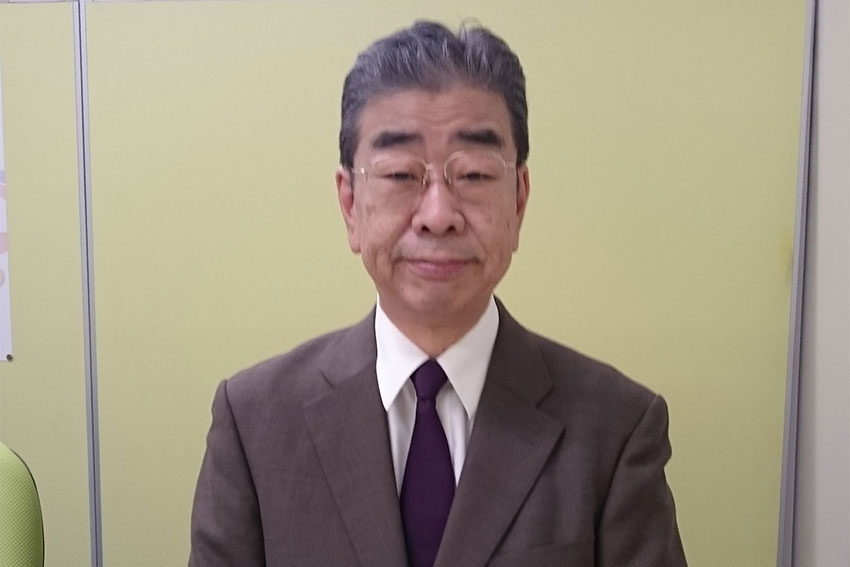Mr. Yutaka Nakau, President of the Japan Forming Machine Association (JFMA), affirms that the future of the industry will look at how to create added value with the adoption of IoT and green tech. He also explains how the ‘MF-Tokyo’ fair is the perfect platform to support the creation of new global links to further integrate the industry with the world market.

Can you please share your personal perspective on the status of the industry today and what future of the industry when it comes to the application of IoT, AI, Big Data, and Cloud technology?
Many of our members are already leveraging on the IoT trend. The question remains as to how to utilize the information created in a more fruitful way, not only for the industry stakeholders, but also for policy-making at government level.
The major strengths of Japanese manufacturing are reliability and high quality. What we are seeking now is a step further, which is how to create more added value manufacturing for our customers. So, in this sense, after sales customer service is very important and of course IoT plays a key role in this context.
Could you please give us an overview of JFMA’s activities and mission?
Our association has the mission to grow together with our member companies. Ensuring growth is a very important aspect for our members. When we look at JFMA, we can distinguish two product categories, namely press machinery and sheet metal processing machines but there are also other related products. Most of the Japanese manufacturers in those two areas are members of the Japan Forming Machinery Association (JFMA).
JFMA is organized in different committees that work on distinct competence areas. So, for instance, one of our bodies has the objective to create a common ground for safety standards. If technical issues or other proposal are raised, JFMA engages with the relevant industry stakeholders to find valuable solutions for our members.
What do you identify as priorities for the future success of your members?
As part of JFMA’s strategic objective to increase the global competitiveness of our member companies, we launched in 2009 the Metal Forming & Fabricating Fair Tokyo (MF-Tokyo), a platform for industry stakeholders to connect, raise awareness about their products, trade and deal with new clients. MF-Tokyo 2017 has reached its 5th edition.
MF-Tokyo is an opportunity to disseminate the latest metal-forming technologies to the world; attract high-quality customers; and provide the latest information on metal-forming technologies through the series of seminars and lectures. MF-Tokyo 2017 recorded over 31,000 visitors, over a thousand of which were foreigners. The presence of foreign exhibitors recorded double-digit growth of 11.1%, with 80 companies compared to the previous edition in 2015.
The internationalization of Japanese manufacturing has been started with large corporations for many years. MF-Tokyo is our prime platform not only for large corporations but also small-to-midsized corporations could promote their product to seek global expansion. Another way is by acquisition of foreign companies in order to expand the global customer base.
Sustainability is no longer a buzzword but a reality for all industry players. How are your members innovating when it comes to eco-friendly machines?
Our strategy in this direction started in 2009, with the Metal Forming Eco-Machine Approval System. This is our own eco-machine concept in order to save energy in the manufacturing of large machines. We issue this certificate to companies that comply with the standard. We are actively promoting our eco-friendly through ISO–as we participate in some of their activities.
Could you please share with our readers some key statistics that can provide a snapshot of the industry?
When we look at the order entry trend, 2016 recorded a decrease by 8.4% year-on-year. Having said that, according to the latest data we’ve been collecting, we are expecting an upward trend again for 2017 with a 12-15% year-on-year increase.
Press machines and fabricating machines represented 53% and 33% of the total orders respectively, with the remaining 24% consisting of services, parts, and tooling. It’s worth noting also that 41.3% of the orders were export-oriented.
Japan Inc. goes global: based on your expertise and members, what are the markets and industries with the highest growth potential for your members?
In terms of geographical export areas, the U.S. and China are the industry’s largest export destinations, standing at 39% and 20% respectively in 2016. Southeast Asia along with South Korea and Taiwan are also important markets, each representing 11% of export (South Korea and Taiwan are accounted as one market). When we look at the different sectors where our members’ technology is applied, we are heavily dependent on the automotive industry.
0 COMMENTS